Happy Tuesday! Join us tonight for a special members-only Dispatch Live, where we’ll discuss our recent acquisition of SCOTUSblog and chat with newest Dispatcher Amy Howe about the Supreme Court. Become a Dispatch member today to watch this special live event.
Quick Hits: Today’s Top Stories
- Canadian Prime Minister Mark Carney and his Liberal Party came out on top in their country’s federal election Monday, though it’s too early to say whether the Liberals will win an outright majority in Parliament or will have to form a coalition. Officials planned to resume vote tallying later this morning. The victory—which included unseating Conservative Party leader Pierre Poilievre—represents a remarkable turnaround for Canada’s Liberal Party. Then-Prime Minister Justin Trudeau announced in January he was stepping down amid low approval ratings and intraparty tension. Carney, a former head of the Bank of England, became prime minister on March 14. He has been a vocal critic of President Donald Trump’s trade war, announcing last month that, “The old relationship we had with the United States, based on deepening integration of our economies and tight security and military co-operations, is over.”
- President Donald Trump on Monday issued three executive orders, one of which directs Attorney General Pam Bondi and Homeland Security Secretary Kristi Noem to “publish a list of States and local jurisdictions obstructing federal immigration law enforcement,” which it refers to as “sanctuary jurisdictions.” “Sanctuary jurisdictions that do not comply with federal law may lose federal funding,” a White House fact sheet states. The second executive order enhances local police department capabilities to “relentlessly pursue criminals,” and includes extending legal liability protection for police officers, while also increasing their training resources, pay, and benefits. Meanwhile, the third stipulates that licensed commercial drivers be “properly qualified and proficient in English
- Russian President Vladimir Putin on Monday ordered a three-day ceasefire suspending “all military actions” in his country’s invasion of Ukraine between May 8 and May 11, and urged Ukraine to follow suit. Ukrainian Foreign Minister Andrii Sybiha responded later that day to reiterate Ukraine’s support for a ceasefire lasting at least 30 days. “If Russia truly wants peace, it must cease fire immediately,” he wrote on X. “Why wait until May 8th?” The Kremlin said the three-day pause commemorates “Victory Day,” the Russian holiday on May 9 celebrating the date Nazi Germany forces surrendered in 1945. The Kremlin’s announcement came four days after Trump criticized a Russian airstrike on Kyiv, telling Putin on social media to “STOP!”
- Putin and North Korea both confirmed for the first time Monday that North Korean forces were aiding Russia in its invasion of Ukraine. Earlier in the day, North Korean ruler Kim Jong Un announced the construction of a monument honoring North Korean soldiers killed in the Russia-Ukraine war, North Korean-state media reported. Shortly after, Putin thanked North Korean soldiers for their “heroism” in fighting alongside Russian forces against Ukraine in a message posted on the Kremlin’s website. Intelligence reports from U.S., Ukrainian, and South Korean officials indicated that about 12,000 North Korean troops in fall 2024 were deployed to Kursk—the western region of Russia that Ukraine targeted in its August 2024 counteroffensive—to aid ailing Russian forces. Russia’s top military leader on Saturday said the country’s forces achieved the “complete liberation” of Kursk, which Ukraine’s military denied was true.
- The Houthis, an Iran-backed, Yemen-based terrorist organization, said on Monday that a U.S. airstrike in Saada—a city in northwestern Yemen under Houthi control—struck a migrant detention facility, killing at least 68 African migrants and injuring dozens of others. U.S. Central Command (CENTCOM) said it was “aware of the claims of civilian casualties,” and conducting a damage assessment to investigate the Houthis’ reports, the New York Times and Washington Post reported. One day earlier, CENTCOM said it had struck more than 800 Houthi targets since March 15, when the U.S. military launched “Operation Rough Rider” to weaken the Houthis and prevent their continued assaults on commercial ships in the Middle East. “These operations have been executed using detailed and comprehensive intelligence ensuring lethal effects against the Houthis while minimizing risk to civilians,” a CENTCOM press release on Sunday night stated.
- Meanwhile, the Trump administration announced new sanctions on three shipping companies and their owners for delivering oil and gas to the Ras Isa port in Houthi-controlled Yemen. Two companies were registered in the Marshall Islands, a small country in Oceania, and used a single ship each—flagged under Panama and San Marino banners, respectively—to complete the fuel delivery. The third sanctioned company—registered in the East African nation of Mauritius—similarly used a Panama-flagged ship for its fuel delivery that, since February 2023, had also illegally exported Russian oil, per the Treasury Department.
- Hundreds of employees at the Justice Department (DOJ)’s civil rights division have departed the agency in recent weeks, including about half of the 380 total lawyers the office employed in January, several news outlets reported on Monday. Moreover, according to the Guardian, the office’s voting bureau was directed to “dismiss all active cases” and its senior managers were reassigned to a DOJ office handling employee complaints. On Friday, seven Democratic senators on the Senate Judiciary Committee requested that the DOJ notify them of all personnel changes in the agency’s civil rights office since Trump’s inauguration three months ago.
Get the Facts from a Global Oil and Gas Expert

Autism Research Advocates Question RFK’s Motives
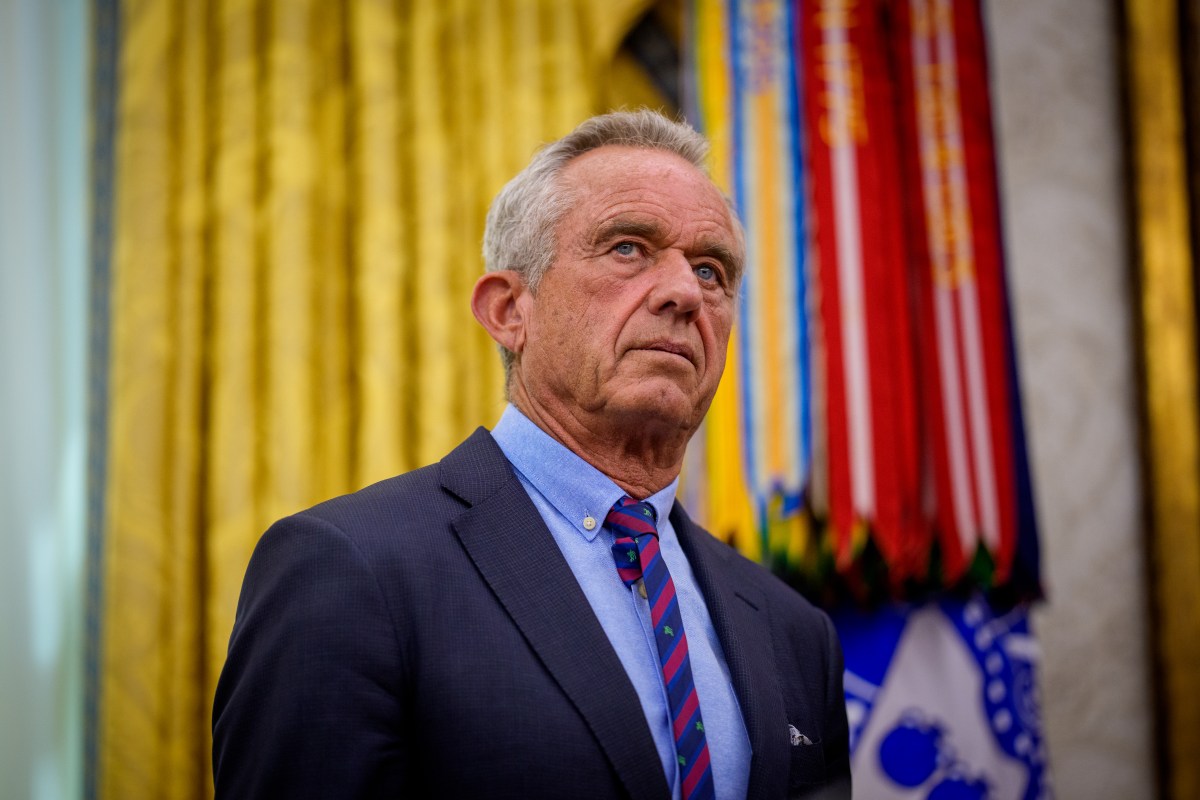
For years, Robert F. Kennedy Jr. has believed that childhood vaccines cause autism, and he’ been sharing such claims with everyone who would listen—from readers of Rolling Stone to strangers he encountered on hiking trails.
Now Kennedy is using his platform as secretary of the Department of Health and Human Services (HHS) to launch a project studying the cause of autism, and the way he’s going about it has prompted concern from vaccine researchers, autistic people, and their families, and privacy advocates.
As a non-paying reader, you are receiving a truncated version of The Morning Dispatch. You can read our 1,492-word item on Robert F. Kennedy Jr.’s autism study in the members-only version of TMD.
Today’s Must-Read
Nearly 100 days into his second term as president, things are clearly not going great for Donald Trump. His administration’s first major domestic undertaking, the dubious plan to cut government waste through the Department of Government Efficiency, appears to be rapidly losing support after months of goal-post moving and results embellishing. All the major stock market indices have declined significantly since the beginning of the year, largely due to Trump’s new tariff regime, which is already harming the economy in other ways. American allies feel spurned while American enemies appear emboldened. Even the most successful part of the Trump administration’s agenda, increasing border and immigration enforcement, has become mired in legal challenges thanks to some high-profile cases that suggest, at best, administrative carelessness and, at worst, defiance of the law.
Toeing the Company Line
Green Shoots
Does Trump’s polling slide matter?
The Good Tsar
Trump’s sycophants are chosen because of their weaknesses, not in spite of them.
A Night Under Fire in Kyiv
Sheltering in a subway station as missiles explode overhead.
A Brief Timeline of Trump and Crypto
From NFT trading cards to family ownership in a crypto firm.
Republicans Hone the Fine Art of Responding to Trump
During the president’s first 100 days, GOP lawmakers have kept public pushback to a minimum.
The Arrest of Judge Hannah Dugan
Plus: David Lat joins The Dispatch extended legal universe.
Worth Your Time
- Escalating tensions between India and Pakistan last week led to both countries’ governments cancelling visas for each other’s citizens. Writing in the New York Times, Suhasini Raj, Mujib Mashal, and Pragati K.B. share how the rift has affected families caught in the middle. “Families like Takhat Singh’s, with members on both sides of the border, faced painful separation,” they wrote. “Mr. Singh, his younger daughter and his son have Pakistani passports. His wife and his older daughter have Indian ones. They had all been in the Indian state of Rajasthan for the wedding of Pintu, the older daughter. When India announced the visa cancellations, the family left her behind in her future husband’s village and rushed to the border crossing, hoping to make it home before it closed. But Mr. Singh’s wife, Sindhu Kanwar, was not allowed to proceed because of her Indian passport. … With his wife’s Pakistani visa suddenly canceled, Mr. Singh worked his phone, pleading with officers to let her return with the rest of the family. They refused. But they allowed one concession: She could walk with them to the final checkpoint and wave goodbye.”
- In Reason magazine, Katarina Hall writes about the accidental discovery of an ancient Mayan megacity. “Swallowed by the rainforest, this lost urban center contained pyramids, plazas, amphitheaters, and highways,” she wrote. “But this discovery wasn’t made by a team of seasoned explorers hacking through the rainforest with machetes. It was made by a Ph.D. student. And he found it by accident. ‘I was on something like page 16 of a Google search and found a laser survey done by a Mexican organization for environmental monitoring,’ Luke Auld-Thomas, who is pursuing his doctorate at Tulane University, explained to the BBC in October. That overlooked, decade-old survey contained groundbreaking information hidden in plain sight. … Now named Valeriana, this lost metropolis is believed to be one of the densest Mayan cities ever discovered. At its peak (between 740 and 850 A.D.), it may have housed anywhere from 30,000 to 50,000 people—more than the region's population today. Over 6,000 buildings were identified, ranging from homes to towering pyramids.”
Presented Without Comment
CNN: US Navy Loses $60 Million Jet At Sea After It Fell Overboard From Aircraft Carrier
In the Zeitgeist
On this day 126 years ago, jazz legend Duke Ellington was born—although he didn’t call his craft jazz, but “American music.” For someone who grew up in the early 20th century—before streaming, CDs, cassettes, and even vinyl records—musical inspiration might have been hard to come by. But not for the Duke. In 1944, Ellington told The New Yorker’s Richard O. Boyer “that the train’s metallic rhythm soothes him.”
Indeed, one of the most recognizable hits performed by the Duke Ellington Orchestra, and composed by Ellington’s longtime collaborator Billy Strayhorn, was none other than “Take the A-Train.”



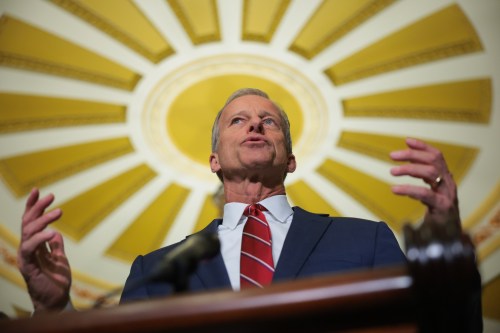
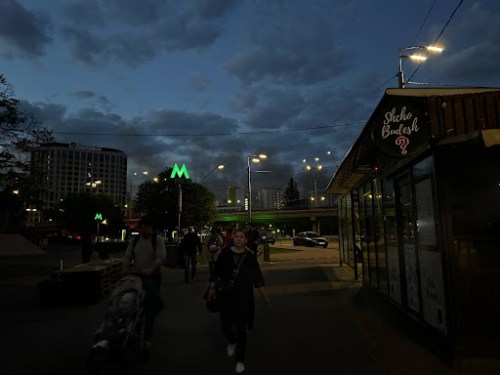

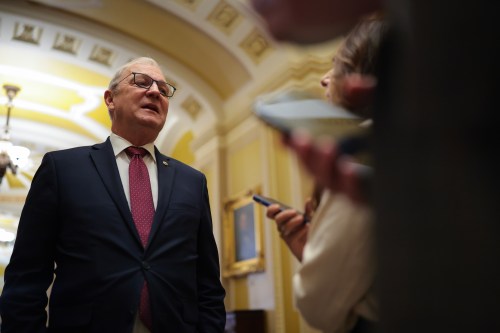







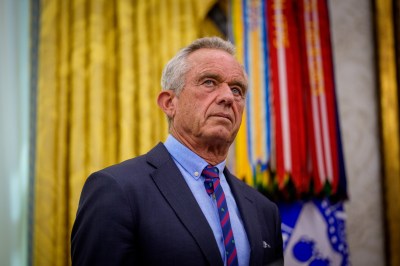
Please note that we at The Dispatch hold ourselves, our work, and our commenters to a higher standard than other places on the internet. We welcome comments that foster genuine debate or discussion—including comments critical of us or our work—but responses that include ad hominem attacks on fellow Dispatch members or are intended to stoke fear and anger may be moderated.
With your membership, you only have the ability to comment on The Morning Dispatch articles. Consider upgrading to join the conversation everywhere.